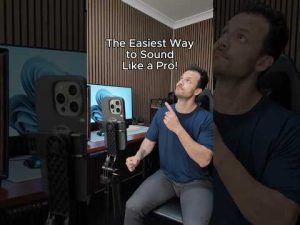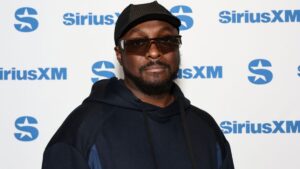University of Southampton AI crafts heartfelt Valentine’s ballad


Key takeaways
- A love letter written by an AI text generator developed at the University of Southampton and set to music has been released for Valentine’s Day.
- The entire collection, “Love Letters,” will be made available in April as a part of Dr. Benjamin Oliver’s upcoming album, Too Many Sweets. Oliver is an associate professor of composition.
- To feed a text generator known as LovelaceGPT, he collaborated with Will May, a modern and contemporary literature professor, to compile a sizable collection of quotes from thousands of love poems and songs.
A love letter written by an AI text generator developed at the University of Southampton and set to music has been released for Valentine’s Day.
“There is the answer to my life, and you’re my biohazard baby!” is a line from the love song “Delirious Ecstasy.” As of right now, Spotify and other channels offer streaming for it.
It is one of seven original and peculiar tunes composed by music, computer science, and English professors at the University of Southampton. The entire collection, “Love Letters,” will be made available in April as a part of Dr. Benjamin Oliver’s upcoming album, Too Many Sweets. Oliver is an associate professor of composition.
Dr. Oliver, the project leader, composed the music. To feed a text generator known as LovelaceGPT, he collaborated with Will May, a modern and contemporary literature professor, to compile a sizable collection of quotes from thousands of love poems and songs. Student researcher Yaseen Mohammed Osman constructed it under the guidance of Dr. Shoaib Jameel, a computer science lecturer.
“Creating Love Letters was super fun,” stated Dr. Oliver. LovelaceGPT produces words that are wonderful and evocative but also frequently strange. Using a text generator to create creative texts felt very liberating because you don’t have to pay the machine anything, and it doesn’t matter if you make harsh edits. It also won’t stop producing content, regardless of its absurdity!
“I’ll admit, though, that there’s a melancholy quality to writing something so intimate and personal using technology, so I’m not sure LovelaceGPT should be allowed to write Valentine’s Day cards anytime soon.”
Hannah Williams, a singer and vocal coach at the University of Southampton, recorded the entire set of Love Letters with the help of four keyboardists and percussionists from the London-based contemporary classical music group Riot Ensemble.
The recordings can be found on Benjamin Oliver’s Too Many Sweets portrait album, which NMC will distribute and be released by Birmingham Record Company in April 2024.
The earliest attempt to create love songs with AI
Holly Herndon, who received her doctorate from Stanford University’s Center for Computer Research in Music and Acoustics, was one of several musicians who argued for the laptop as an instrument a few years ago. In her 2012 debut album, Movement, she utilized software for vocal manipulations and called it “the most personal instrument the world has ever seen.” With Platform, three years later, she examined her increasingly apprehensive and critical relationship with technology.
She began testing artificial intelligence’s capabilities as a musical collaborator in 2020 and started to pit it against itself, exposing its limitations through digital engineering. Her goal was to strengthen the human element rather than to replace it. Herndon and her partner, Mathew Dryhurst, created an artificial intelligence (AI) “baby” for their third full-length album, Proto.
They named it Spawn, and it is unquestionably a female singer. The AI “baby” is kept in a device that looks like a portable TV. They used her and a sizable flesh-and-blood chorus to help craft the thirteen ethereally captivating tracks that makeup Proto.
AI continues to make its mark in music
Several years after Holly experimented with technology, the University of Southampton has AI producing heartfelt love songs today. Last year, arguments from musicians, producers, and keynote individuals in the society serenaded the industry. Many argue for, and others argue against, the integration of artificial intelligence in making music.
MidderMusic reported a famous former US President’s opinion about the use of AI in music production. According to Obama, AI lacks the rigor to provide seasoned innovativeness, a recurring problem of some AI tools like ChatGPT and Bard AI. Obama goes on to reiterate that AI technology has the ability only to make “predictable” music rather than “weird” or “messy” music.
Amidst the argument, other artists and music enthusiasts inquired about the strength of AI to reproduce songs of late music maestros and legends. Indeed, it will be a long road for AI and every other interlocutor opposing and supporting its emergence.
Post Views: 163








